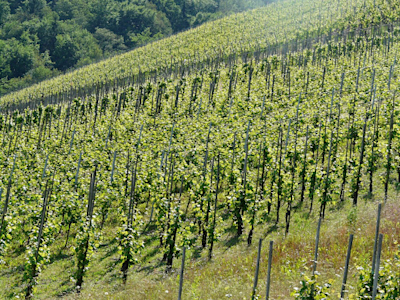Many wine enthusiasts are unaware of the advantages of investing in fine wine.
Today, we're going to explore the different types of fine wine investments and why fine wine should be a part of your investment portfolio.
What Is Fine Wine Investing?
Investing in fine wine is a mid to long-term investment, typically ranging between five to ten years or longer. You can invest in wine in a couple of different ways, either by maintaining a personal collection or investing in fine wine stocks/mutual funds.
Most Famous Wines to Invest In
Only the highest quality, critically acclaimed fine wines are deemed to be investment-grade wines. Here is a breakdown of some of the most famous producers of fine wine for investing by region:
Bordeaux (Left-Bank): Chateaux Latour, Margaux, Haut-Brion, Lafite-Rothschild, and Mouton-Rothschild.
Bordeaux (Right-Bank): Pomerol and Saint-Emilion.
Burgundy: Georges Roumier, Leflaive, De La Romanee-Conti, Armand Rousseau, and Coche-Dury.
Rhone Valley: Paul Jaboulet, Chateau de Beaucastel, Chateau Rayas, and Jean-Louis Chave.
Australia: Henschke, Jim Barry, Torbreck, Mount Mary, and Penfolds.
America: Screaming Eagle, Harlan Estate, Opus One, Caymus, and Schrader Cellars
A Physical Fine Wine Collection
When you choose to invest in wine, one of your options is to keep a personal collection of fine wine within your home. If this is a route you would like to pursue, you need to consider a couple of things: storage and insurance.
Storing Your Fine Wine
If you're going to be keeping your fine wine collection within your home rather than in a bonded warehouse, you'll need to store your wine in a dark area where temperature and humidity are at optimum levels.
If you live in a moderate climate, a basement or a dark closet may suffice your wine storage needs. However, if your area's climate is not optimal for storing wine this way, you will need a wine cooler.
Insuring Your Fine Wine Investments
Because fine wine is considered a valuable commodity, like jewelry, you'll want to have your collection insured. You'll want to have the total value of your collection covered by your home insurance company or a separate insurance provider.
Fine Wine Stocks and Funds
The alternative to keeping a personal collection of fine wine in your home is to invest in wine stocks or mutual funds. Stocks are available for any publicly traded wine company, such as Willamette Valley Vineyards.
Wine funds, on the other hand, are most comparable to private equity funds. These types of investments are run by fund managers who are wine investment experts. Because of this guidance, wine funds are often recommended by investment advisors.
Will You Be Investing in Fine Wine?
The world of wine is vast and provides an opportunity for low-volatility investing with strong returns annually. We've merely scratched the surface of what you need to know about fine wine investing in this article.
If you're ready to begin investing in fine wine but don't know where to start, we here at Vint are prepared to walk you through the process. Join us to become one of the first people we help diversify their investment portfolio today.


